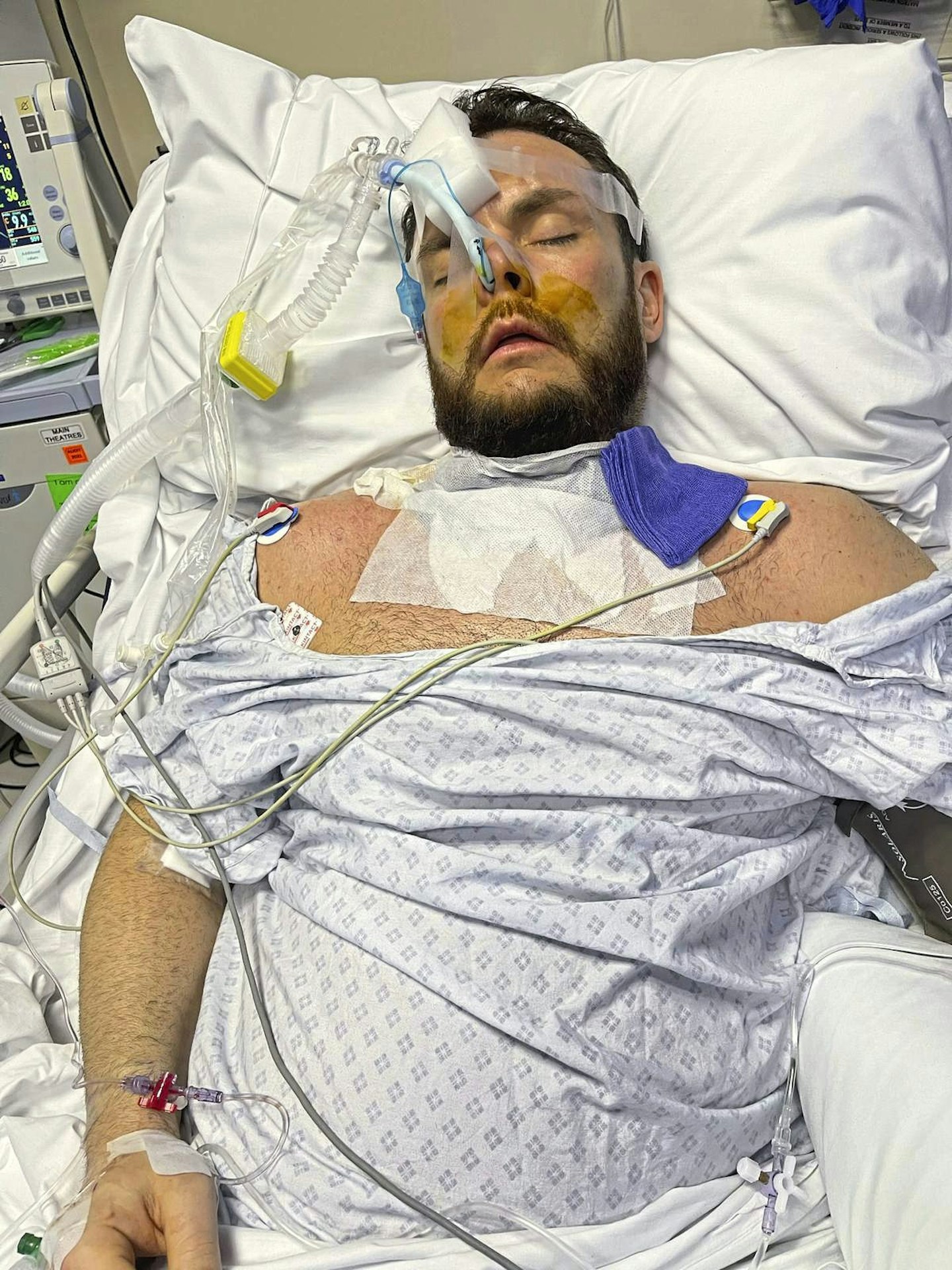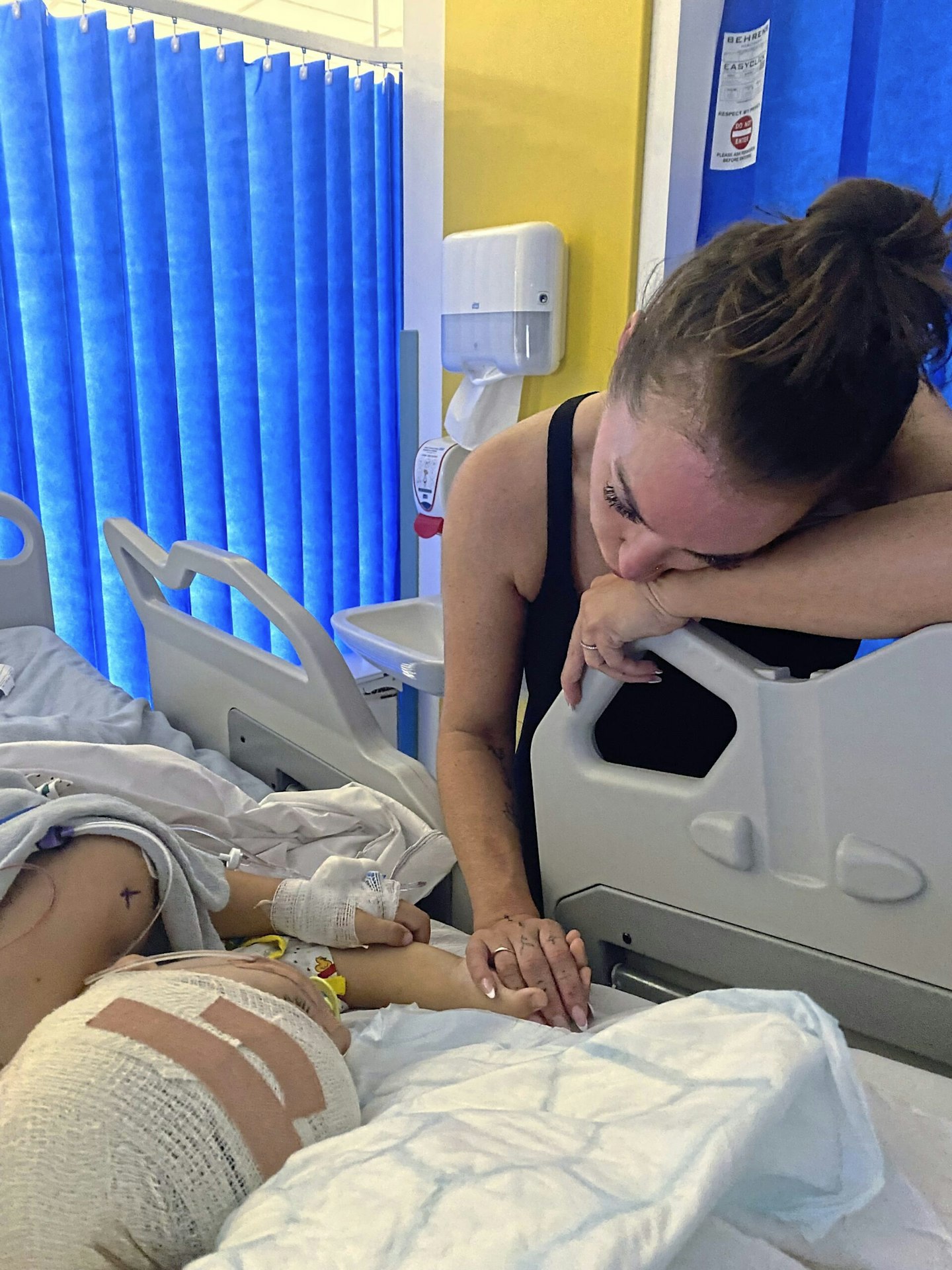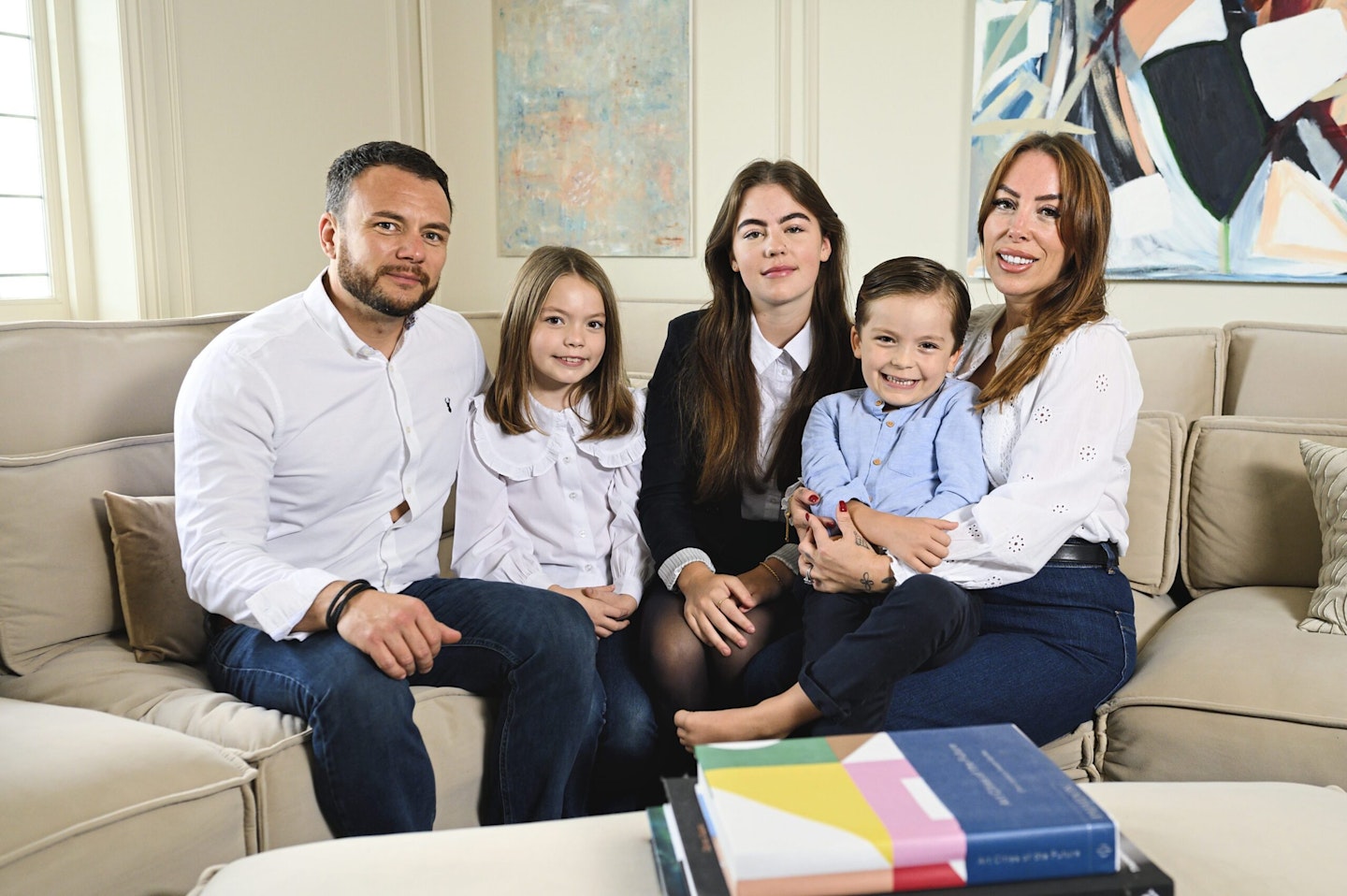I’d was still reeling from my son’s frightening diagnosis when I got a shocking call from the hospital about my husband. By Clare Jones, 42

Sinking into the pool, a feeling of contentment washed over me.
My hubby Brad and I were enjoying a weekend break with our kids Octavia, eight, and Julius, four.
While Octavia splashed about, Brad was helping Julius stay afloat.
But as I watched, I saw our little boy freeze. His face paled and he began leaning to one side.
‘What’s happening?’ I said.
Just then, his body jolted in the water and seconds later, he went floppy.
‘I can’t rouse him,’ I said to Brad, both of us panic-stricken.
Getting out of the pool, I dialled 999 and they told us to get him to A&E.
After checking him over, a doctor said: ‘He’s had a seizure.’
He reassured us that lots of kids suffer one and never have another.
But the next day, the same thing happened, only this time the seizure lasted longer.
'I have a hot brain, Mummy'
Again, we rushed Julius to A&E, but no one seemed to have any answers.
‘Please help us,’ I pleaded. ‘Something’s going on.’
Eventually, they referred him to the clinical epilepsy team.
After that, Julius would have seizures every day. We’d put him in the recovery position and reassure him, stroking his back. Then afterwards he’d be so exhausted, it was as if he’d run a marathon.
I was so terrified, I began sleeping in his room with him.
Thankfully, Julius wasn’t aware of the seizures, but sometimes, he told me: ‘I have a hot brain, Mummy.’
It worried me, so I asked the nurse we were close to at the epilepsy clinic: ‘Could he have a brain tumour?’
‘Yes, but it’s very rare,’ she said.
However, a couple of weeks on, Julius had an MRI scan and afterwards a doctor said: ‘I’m sorry, but we’ve found something.’
They suspected it was a rare, slow-growing, benign brain tumour called a dysembryoplastic neuroepithelial tumour (DNET).

‘Can you show us?’ Brad asked.
When the doctor turned the screen round, I gasped. The tumour was buried deep in his brain.
‘How are they were going to get it out?’ I asked. ‘I don’t want that in my child’s head.’
We were told the scan would be sent immediately to Great Ormond Street Children’s Hospital (GOSH) where a team of medics would decide on Julius’ treatment.
Back at home, we were still reeling as we waited for news. At first we decided not to say anything to Octavia and my daughter Bella, 16, from a previous relationship.
But I wasn’t eating or sleeping, and Bella could sense something was wrong, so we sat them down and explained.
They were both upset and worried.
‘Is he going to die?’ Octavia asked, tearfully.
'Is he going to die?'
‘No, he’s in the best hands,’ I said.
But it was my worst fear too, and it played on my mind constantly.
I quit my job to care for Julius and spent time arming myself with information to help me process what was happening. Meanwhile, Brad’s way of coping was to throw himself into work.
Although I understood that he needed to distract himself and it was his way of helping our family, inside, I felt alone.
In time, we were told Julius would need surgery to remove the tumour. But as we waited for a date for his operation, Brad began feeling unwell.
He had a painful, swollen tooth, but he kept ignoring it until it got so bad, he was sent to A&E.
‘Let me know how it goes,’ I said to him before he left.
Later, my phone beeped with a garbled message.
They’re taking the tooth out now and I might be asleep later, he said.
But when a doctor called a few hours later, he said Brad was in an induced coma.
‘He’s pulled through the surgery, but it’s still touch and go,’ he said.
‘What do you mean?’ I asked.
Then I listened in shock as he explained that when Brad arrived at the hospital, he was given just two hours to live.
He hadn’t wanted to worry me, but the infection in his tooth had spread, causing sepsis.
Thankfully, they’d been able to operate in time, and he was being treated with antibiotics, but he was still seriously unwell.
I was in shock as I called my parents to look after the kids, while I raced to Brad’s side.
Tears welled when I arrived at the intensive care unit and saw him lying there, surrounded by tubes helping him breathe.
I couldn’t believe both my son and husband were fighting for their lives.
But the hospital staff were amazing and gave Brad incredible care.
Within a week, he was discharged to continue his recovery back at our home in Essex.
Meanwhile, Julius continued to have daily seizures, which seriously impacted his daily life.
At school he needed one-to-one care and his classmates were so caring, they’d watch out for him too.
They were mainly girls and we’d joke they were like his wives and mums, doting on him!
When the date for his operation finally arrived I told my Marvel-mad boy: ‘You’re going to the superhero hospital so the doctors can take out the nasty thing in your head.’
He was so excited, it made what was to come much less scary.

Before he was wheeled into theatre, I held his hand and said: ‘You’re the bravest little boy I know.’
Waiting was hard, but I had a good feeling and, when the seven-hour operation was over, his surgeon told us everything had gone to plan.
I was able to stay with him overnight, but at 3am I was woken by Julius shouting: ‘Doctor!’
‘What’s wrong, love?’ I asked, worried.
‘Everyone’s making a racket and I’m trying to sleep,’ he said.
That was just like our funny, bossy boy and I couldn’t help but laugh.
Now, seven months on, Julius is doing amazingly well.
He hasn’t had a seizure since, and a scan has shown the tumour has gone.
And while he’s been diagnosed with autism, he’s calmer, happier and tells us he hasn’t got a hot brain any more.
Although both Julius and Brad received the best medical care, what was lacking was emotional and practical support for patients and their families.
This wasn’t because the NHS didn’t want to help, they just didn’t have the resources or funds.
So Brad and I have now started the Julius Jones Trust. Our mission is to empower the NHS to provide integrated mental and emotional care for patients and their families, before, during and after treatment.
It was a way to use the experience I’d had as the mum of a poorly child, to make something positive happen for others going through something similar.
Our fundraising arm, Win Amazing, is a national prize draw where people can win cash, holidays, houses and more.
It’s important that parents going through something traumatic realise they’re not alone and that there is help out there.
• For more details, visit the juliusjonestrust.org and winamazing.co.uk
